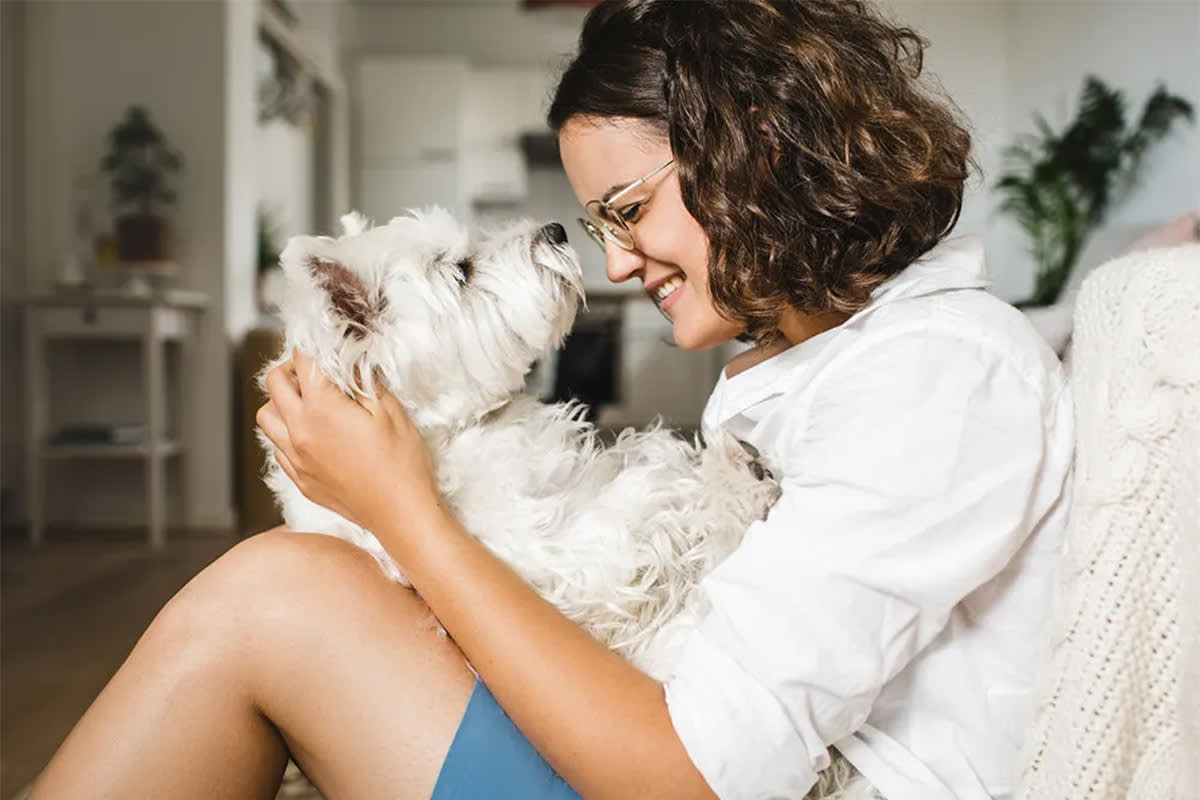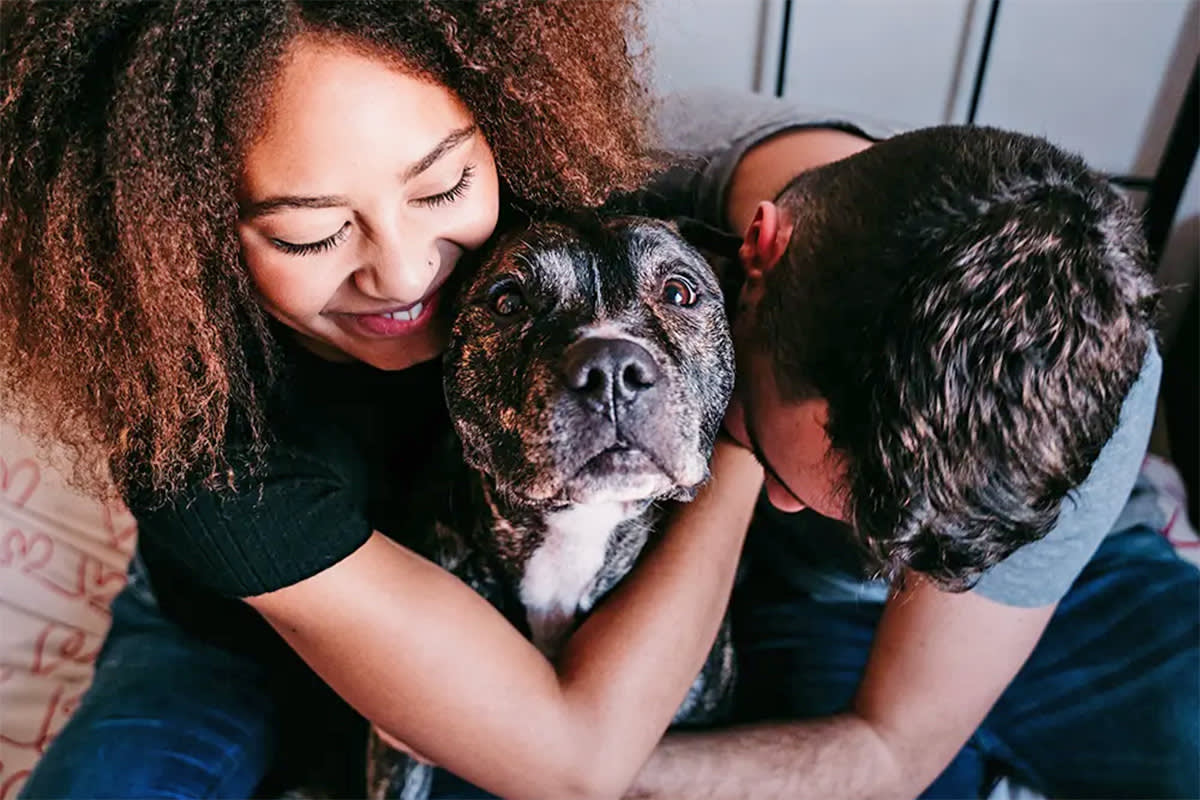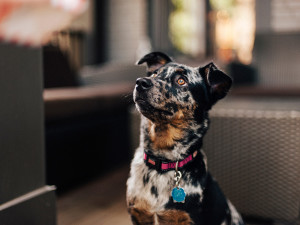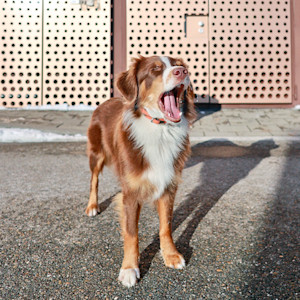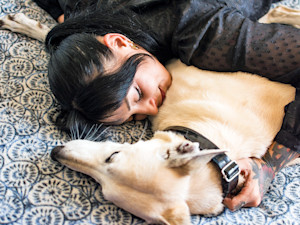Why Do We Call Dogs ‘Dogs’? The Mysterious History Behind This Moniker
Would a pup by any other name still smell like Fritos?
The most delightful words are often the ones that sound exactly like what they describe. You know, terms like “flicker,” “ricochet,” “glamorous,” and “doofus.” Even if you’d never heard a word of the English language, I’m convinced you could successfully guess your way to what each of these words mean. (That said, please do not test this theory and then email me about it, or I’ll have to use another word that sounds like what it means: obnoxious.)
Another example of this phenomenon? The brilliantly succinct word “dog.” It’s a word that slips off the tongue with the chuckle-inducing klunk of a “duh” — a verbal pratfall with just a hint of lovable softness, like a big ball of fur running straight into a wall. But who do we have to thank for this work of linguistic genius?
As it turns out, this isn’t just a question among nerdy dog parents who happened to major in English. It’s also a topic of fascination for etymologists. Dr. Valerie Fridland, professor of linguistics at the University of Nevada and author of the upcoming book Why We Talk Funnyopens in new tab, notes that “dog” is among the more mysterious words in the English language, alongside other commonly used terms like “girl” and “boy.”
“All three of those are words that have a similarly murky etymology,” Fridland says, “which is funny, because they're words we use all the time today.”
How much do you spend on your pet per year?
What did we used to call dogs?
In Old English, the most common word used to describe any dog would have been “hund,” which likely dates back at least 3,000 years to the Proto-Germanic language. Eventually, “hund” became “hound” thanks to a spelling tweak from the French. And in the Old English days, through a process called “semantic narrowing,” the term “hund” came to represent a specific type of dog, which holds true to this day.
At the same time, Fridland says, the far rarer Old English word “docga,” a plausible predecessor to “dog,” appears to have gone through an opposite process of “semantic broadening,” evolving from a word used to describe a specific kind of dog to, eventually, represent all canines.
Most likely, the word “docga” would have referred to a very specific English breed akin to a Mastiff. According to Fridland, linguistics experts believe that the word would have come from the Old English word “dox,” which would refer to a dark or dusky color. As such, she says, the word “docga” probably described a “particularly vicious dog” best known for their dusky mane and its propensity “for aggression and protecting people.”
In the beginning, Fridland says, the word “docga” was extremely rare. How rare? Apparently, it can only be found in one text — a translation from Latin written in the year 1,000. Back then, people did not write a lot, and when they did, they would have primarily written religious texts, which would have little reason to mention dogs. Fridland estimates that in spoken language, the word could date back to the 7th or 8th century. Apparently, the one citation we do have was a little, erm, hairy.
“It was discussing the torture of a 4th century deacon who refused to renounce his faith,” Fridland says. “It was used in that case to very clearly refer to people acting as dogs, which is a really interesting metaphorical use that’s super early.”
But how did a little-used moniker become the word to describe man’s best friend? Fridland has a few theories.
A linguistic underdog story
“Docga” might have been less common in the beginning, but as Fridland notes, semantic broadening and narrowing is common in every language. It can begin in a few different ways, as words take on new meanings and flit in and out of style.
One way this can happen? Over time, the definitions of certain words can become broader, more abstract, or completely change. For example, consider how the word “adult” has expanded in meaning.
“When we talk about adults, historically, we've meant people over the age of 18,” Fridland says. “But now, my teenager tells me how much she hates ‘adulting,’ which is about acting like someone who's mature.” As words take on increasingly peripheral meanings, the way we use them changes.
That’s not the only way certain words grow in popularity. Think about how brand names like Jell-O and Band-Aid can become words we use to describe the objects themselves, regardless of who makes them. This, Fridland says, could be one way that “docga” took over.
“Maybe that breed became more common as a dog type, like the prototypical English dog,” Fridland says, “and as it became more popular, then that word became more generic, just like ‘Kleenex’ has become generic.” Putting breed aside, the same idea could apply if dark dogs simply became more common over time.
Interestingly, the word “dog” could hypothetically be a diminutive, along with similar-sounding words like “frog,” which, similarly, comes from the Old English word “frocga.” The word “puppy,” Fridland notes, is often used in a diminutive way in French, which borrowed the word from the word poupée — meaning toy or doll — during the Middle English period. Considering the way most of us handle lap dogs, this makes more than a little sense.
How language went to the dogs
As always happens with language, dogs have assumed a wide variety of metaphorical meanings over time. By the year 1,000, Fridland says, “we see dogs meaning bad people, aggressive people, or nasty people” — which tells us that at the time, they were not exactly regarded fondly. From the 11th through the 13th century, Fridland says, one can find several texts likening aggressive people to dogs. And in the 16th century, we began to see the word “dog” used as a verb meaning “to follow someone too closely.” (You know, in the same way puppies are always on our heels.)
In some cases, however, the origin of certain dog-related turns of phrase might not be what you expect. For example, Fridland notes that contrary to popular belief, we did not start calling hot dogs “hot dogs” because they share some anatomical similarity to the long-bodied Daschund. “It actually seems to have arisen in cafeterias,” she says. “Boys, particularly in cafeterias in the 1800s, joking about the food being dog meat.”
Another strange origin story would be how the word “dogs” came to describe human feet (“Man my dogs are barking after that hike!”). On the surface, the two have nothing to do with one another. But in the 1900s, Fridland says a popular rhyme played on “dogs’ meat” and “feet” — which is how the association was born.
Other popular phrases come from folklore. For example, “hair of the dog” has its origins in an old wives’ tale that when bitten by a rabid dog, eating some of its mane could help you survive. As we now know, anyone who did this would have been… barking up the wrong tree. (Sorry!)
As elusive as the word “docga” might have once been, dog-related phrases now feel like a permanent fixture of our language — much like our pups themselves have become a (hopefully) indelible part of human society. And if you disagree? I’d say we don’t have a dog’s chance of being friends.


